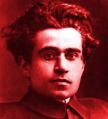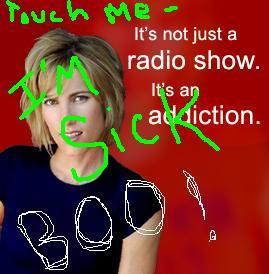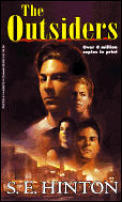 AM Radio blowhardz, part three.
AM Radio blowhardz, part three.Today was going to be a feature on the evil dorkus maximus Michael Savage. But methinks that I have some additional pensees concerning the criticisms of one Lone Ranger, who was kind enough to stop by and comment yesterday. So I will put off the savaging of Savage until tomorrow.
Lone Ranger suggested to me that I ought to criticize the content of Laura Ingraham's talk, rather than skewer her public persona or style of argumentation. Now, it seems pretty old-skool to separate form and content in this way-- as if the background music, the "grain of the voice," the banter with the studio technicians, the speed of delivery, etc. were incidental to the transmission of messages, which are to be thought about as arriving via an invisible teletype simultaneously with the actual program. In the case of Ingraham, or any talk radio personality for that matter, apprehending the aesthetic gestalt requires careful attention to the complete package. This actually works in the favor of personalities like LI-- whose on-air speech translates poorly to the printed page. For evidence of this, one needs only to watch a segment or two of the Daily Show's "Great Moments in Punditry as Read By Children."
Lately, there has been a lot of talk among Dems about Berkeley linguist George Lakoff and the importance of "framing." I don't really know what this means, but I do think that the talk radio phenomenon calls for a return to the theories of the great Italian Marxist theorist Antonio Gramsci. And if this seems far-fetched, consider this: (sometimes pop culture cooperates with radical critiques too perfectly) Rush Limbaugh himself was singing the praises of Gramsci as a sneaky theorist of conservative hegemony a couple of years ago. That's better than Marie Osmond singing a Hugo Ball Dadaist sound poem from 1916 on a variety TV show (which also really happened).
In particular, we should remember the use made of Gramsci by poststructuralist "radical democrats" Ernesto Laclau and Chantal Mouffe. L and M are not much liked by the circles in which I run most of the time, in part because they seem to overemphasize the role of intellectuals in bringing about the overthrow of capitalism. But they did, in their classic work Hegemony and Socialist Strategy, lay out a perceptive analysis of the contemporary political scene.
What L and M were quick to realize, way back in the 1980s, was that the decentering of the certainties of Enlightenment rationalism (with the emergence of postmodernity, whenever that was) had a very specific effect on politics. It meant that the imaginary and symbolic registers of society were now characterized by flux and multiplictity. As a result, left/right conflict was no longer a war of fronts, with incremental gains and losses won or lost in specific struggles. Rather, the real power now lay in the ability to structure discourse by "drawing a line in the sand," or in L and M's favorite term (borrowed from Lacan) choosing a "quilting point" and thereby decisively structuring the fabric of discourse.
To take a concrete example (although the entire lead-up to the Iraq war and the Social Security "crisis" debate demonstrates the salience of this mode of analysis), consider Pat Robertson's call a couple of days ago, for the execution of the democratically elected leader of Venezuela, Hugo Chavez by the Us government. Robertson backpedalled yesterday, saying, in effect, "I just meant that since he had to be removed, taking him out would be cheaper than starting a war." Obviously PR has now started to make his own American quilt, patching together bits of Cold War Latin America realpolitik, manifest destiny, war on terror doublespeak, and evangelical zeal. And liberals will be dragged in to a tedious and tragic debate, which will probably result in all sorts of earnest talking heads on CNN lamenting the need to kill foreign leaders as a consequence of intractable contemporary dilemmas.




























